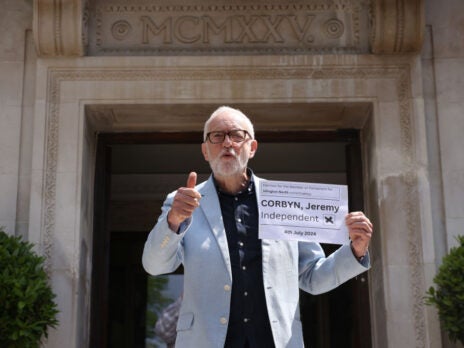
The joy of my Britain Elects trackers is the ease with which I can respond to questions such as “how popular is Rishi Sunak really?”, and other hot topics. It’s a continual source of amusement that, three years into his own leadership of the Labour Party, Keir Starmer remains less known among voters than Prime Minister Rishi Sunak.
Sure, Sunak is Prime Minister. Starmer’s not. But three years in, the difference between David Cameron and Gordon Brown was negligible. The same with Cameron and Ed Miliband. Today, meanwhile, one quarter of us still do not know what to think of Starmer. Twenty-one per cent say the same for the Prime Minister. “Brand Starmer” still doesn’t appear to quite exist in the way that Brand Cameron or Brand Corbyn did. Starmer doesn’t excite many, least of all a sizeable chunk of those that voted Labour in 2019. But “Brand Sunak”, which when the PM ascended to Downing Street I wrote was the only thing going for the Conservatives, has always been very defined (even now, it’s still defined – albeit as unsuccessful).
The longer the Prime Minister lasts, the more his net approval sinks. In October he started at +4. In January he sank to -7. After a drop and a subsequent rise over immigration noise and, yes, Northern Ireland (well done Rishi), he fell further to -10 in June. And now he sits at -18 – the same position Boris Johnson was in just weeks after partygate.
[See also: The Tories are wrong to see Keir Starmer as their secret weapon]
Sunak was once the best thing the Conservatives had going for them. While the Tories polled 25 per cent to 30 per cent, Sunak on his own generally polled at 35 or higher. The Tory party brand might have been in tatters, but his was not. The reason I say that Brand Sunak is finished is not because of his net approvals per se. They’re down, and one year out from the election look irrecoverable. Rather, it's notable because the net advantage Sunak had over his party is gone. The “benefit of the doubt” is worse than in doubt. It’s gone.
According to Ipsos, near three quarters of voters – 73 per cent – rank Sunak as “out of touch with ordinary people”, compared with 47 per cent saying the same for Keir Starmer. It’s not uncommon for a Conservative leader to be considered more out of touch. What is less common is for the numbers to be so emphatic. They stand as the highest for a Conservative prime minister in recent history. Not only that, but they come coupled with the stark statistic that 86 per cent believe the country “needs a fresh team of leaders”.
Sunak’s main selling point was that he represented a break with the Liz Truss revelry, and that he was not Boris Johnson. But inevitably he has become the status quo. And rather than try to recast the status quo in his own image, Sunak has become but another leader the median voter wants out. The prospect of Brand Sunak as an advantage to the Tory's election hopes looks very much dead.
[See also: What is the point of Rishi Sunak?]


